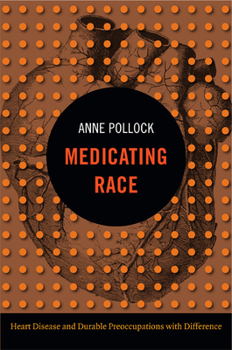Medicating Race: Heart Disease and Durable Preoccupations with Difference
(Part of the Experimental Futures Series)
Select Format
Select Condition 
Book Overview
In Medicating Race , Anne Pollock traces the intersecting discourses of race, pharmaceuticals, and heart disease in the United States over the past century, from the founding of cardiology through the FDA's approval of BiDil, the first drug sanctioned for use in a specific race. She examines wide-ranging aspects of the dynamic interplay of race and heart disease: articulations, among the founders of American cardiology, of heart disease as a modern, and therefore white, illness; constructions of "normal" populations in epidemiological research, including the influential Framingham Heart Study; debates about the distinctiveness African American hypertension, which turn on disparate yet intersecting arguments about genetic legacies of slavery and the comparative efficacy of generic drugs; and physician advocacy for the urgent needs of black patients on professional, scientific, and social justice grounds. Ultimately, Pollock insists that those grappling with the meaning of racialized medical technologies must consider not only the troubled history of race and biomedicine but also its fraught yet vital present. Medical treatment should be seen as a site of, rather than an alternative to, political and social contestation. The aim of scholarly analysis should not be to settle matters of race and genetics, but to hold medicine more broadly accountable to truth and justice.
Format:Paperback
Language:English
ISBN:082235344X
ISBN13:9780822353447
Release Date:October 2012
Publisher:Duke University Press
Length:280 Pages
Weight:0.96 lbs.
Dimensions:0.7" x 6.1" x 9.2"
Customer Reviews
0 rating





